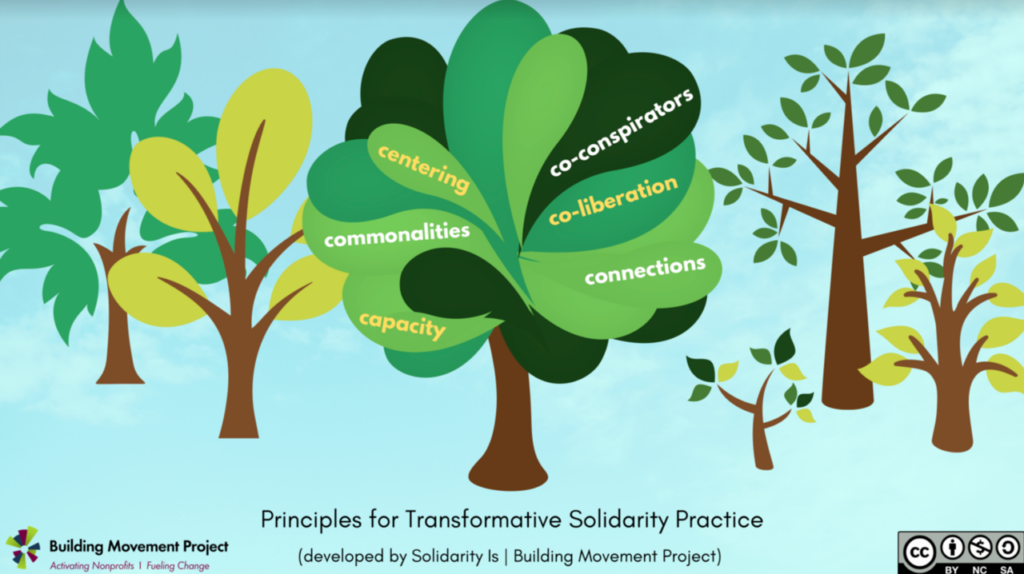Feb
3
2021
Written by Catherine Foley (Communications and Operations Associate)
This Black History Month should be different. After enduring months of overlapping crises, from the COVID-19 pandemic and its disproportionate impact on communities of color to the uprisings against anti-Black racism and police brutality to the White supremacist insurrection just a few weeks ago, it’s beyond time for the nonprofit sector and philanthropy to commit to anti-racism, equity, and co-liberation. While we encourage folks to pause, rest, reflect, and learn, we also urge our non-Black co-conspirators in the sector to take action this month and beyond. We have organized a list of resources as a starting point:
Support Black Women in the Nonprofit Sector. Our 2020 report Race to Lead Revisited includes data and findings collected from over 600 Black women working in the sector. In addition to identifying the challenges and barriers that they faced due to their race and gender, we highlighted four key action steps that nonprofits and philanthropy can take to make the sector more supportive of Black women. Read more here.
Invest in Black-Led Organizations. During the pandemic and the fight against systemic racism and oppression, Black-led nonprofits have been charting a path forward and leading the way. We learned from Black leaders like Angela Lang of Black Leaders Organizing for Communities (BLOC) and Jamila Medley of the Philadelphia Area Cooperative Alliance (PACA) that investments in Black-led organizations are critical to dismantling anti-Black racism and achieving equity for all. Read more here.

Engage in Co-Liberation. The idea of co-liberation is simple, but powerful. It’s a belief in the collective “us” and a demand for liberation, justice, equity, access, rights, safety, and more for everyone. Co-liberation is grounded in the understanding that if some folks don’t have liberation, then no one does. It is also an essential element of solidarity work. Consider the graphic above, which identifies six principles for transformative solidarity practice. Learn more here.
Additional resources for this month and beyond:
Anti-Racism Daily
28 Days of Black History
Democracy Frontlines Fund
The Social Change Ecosystem Map

